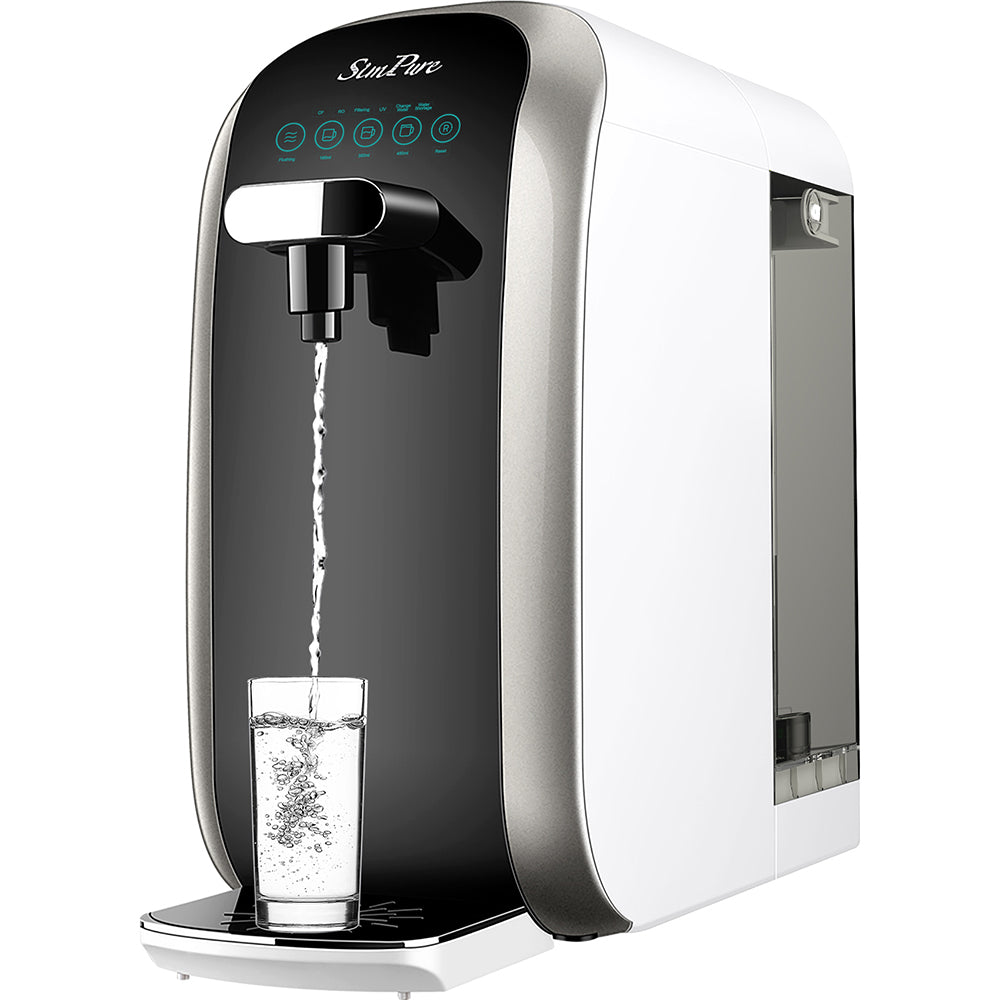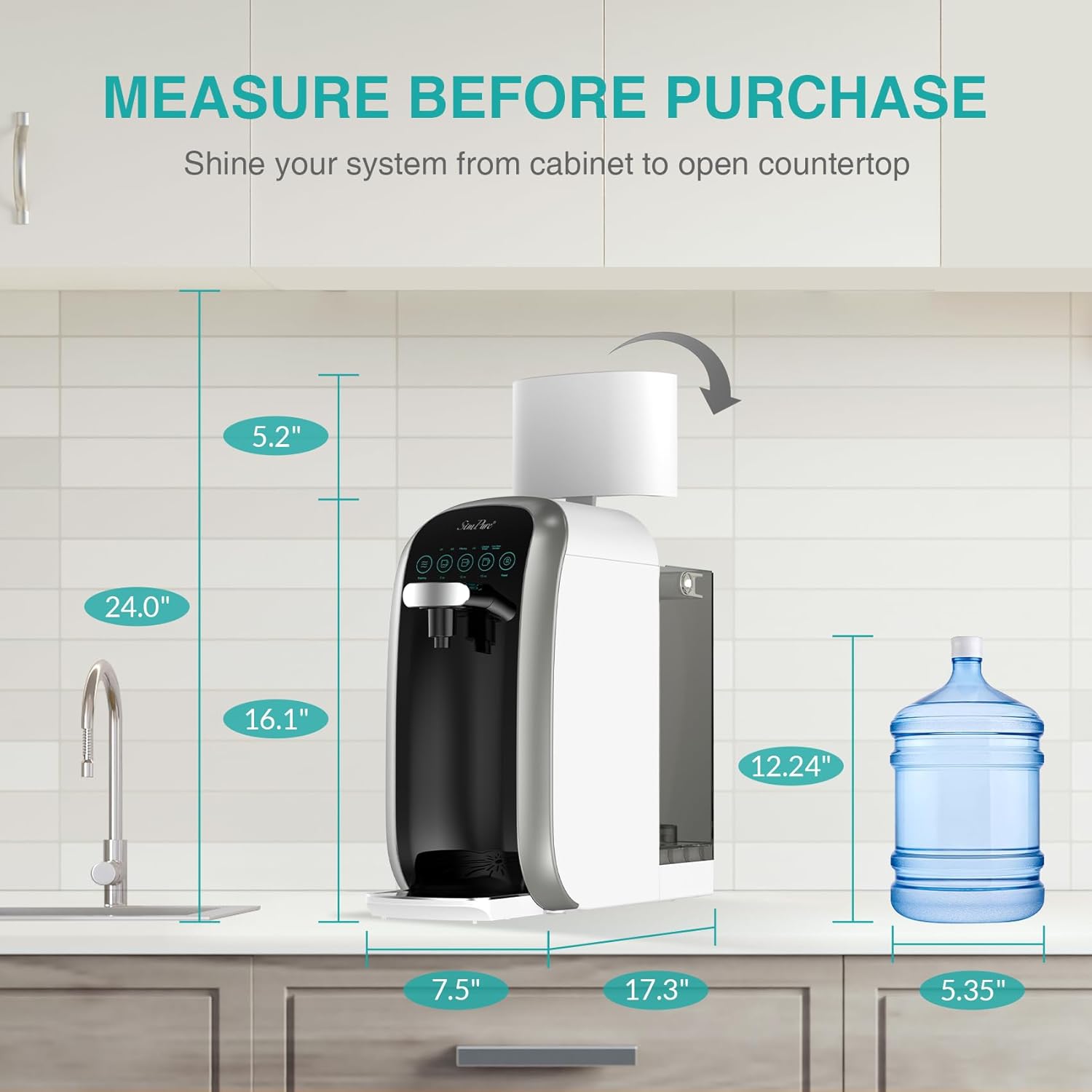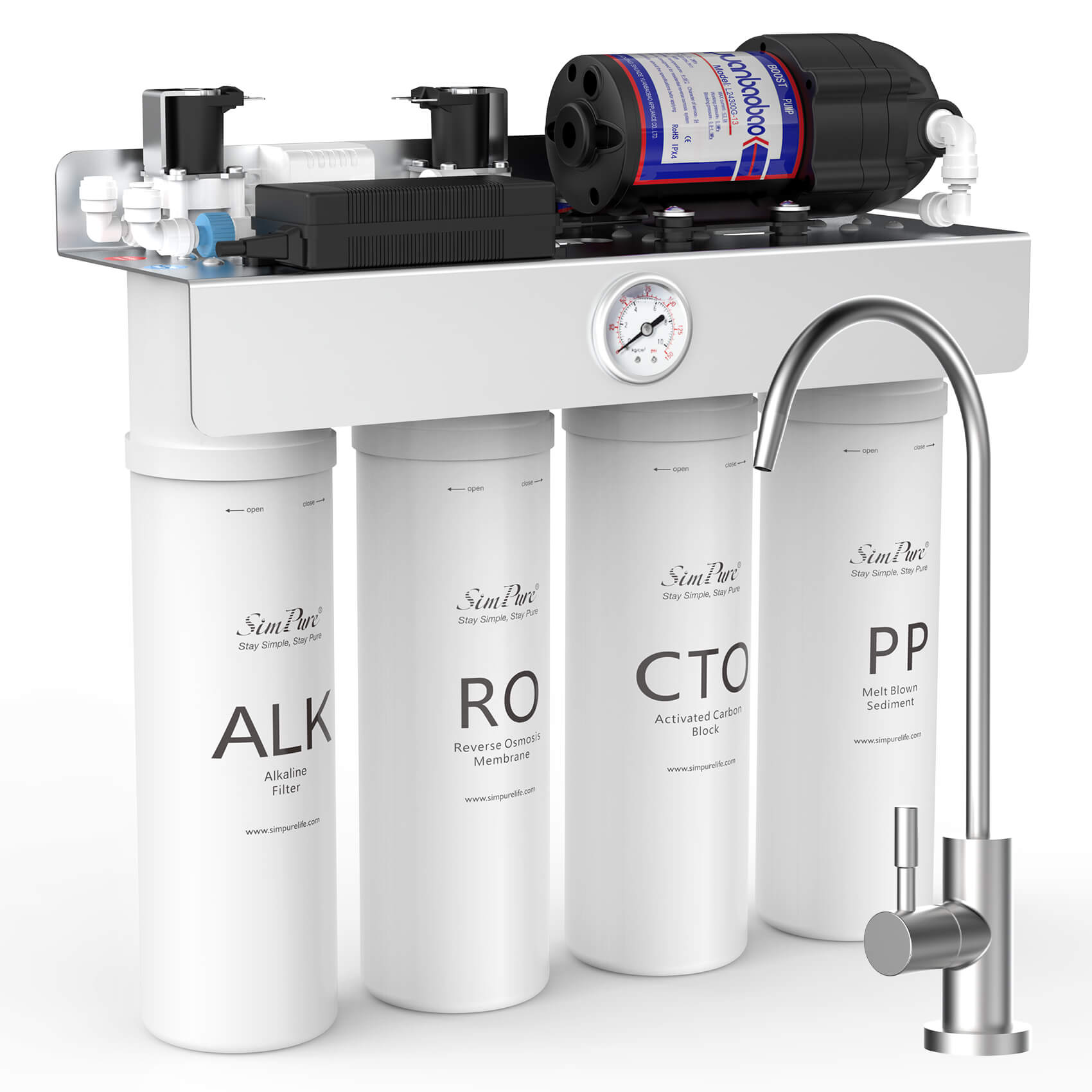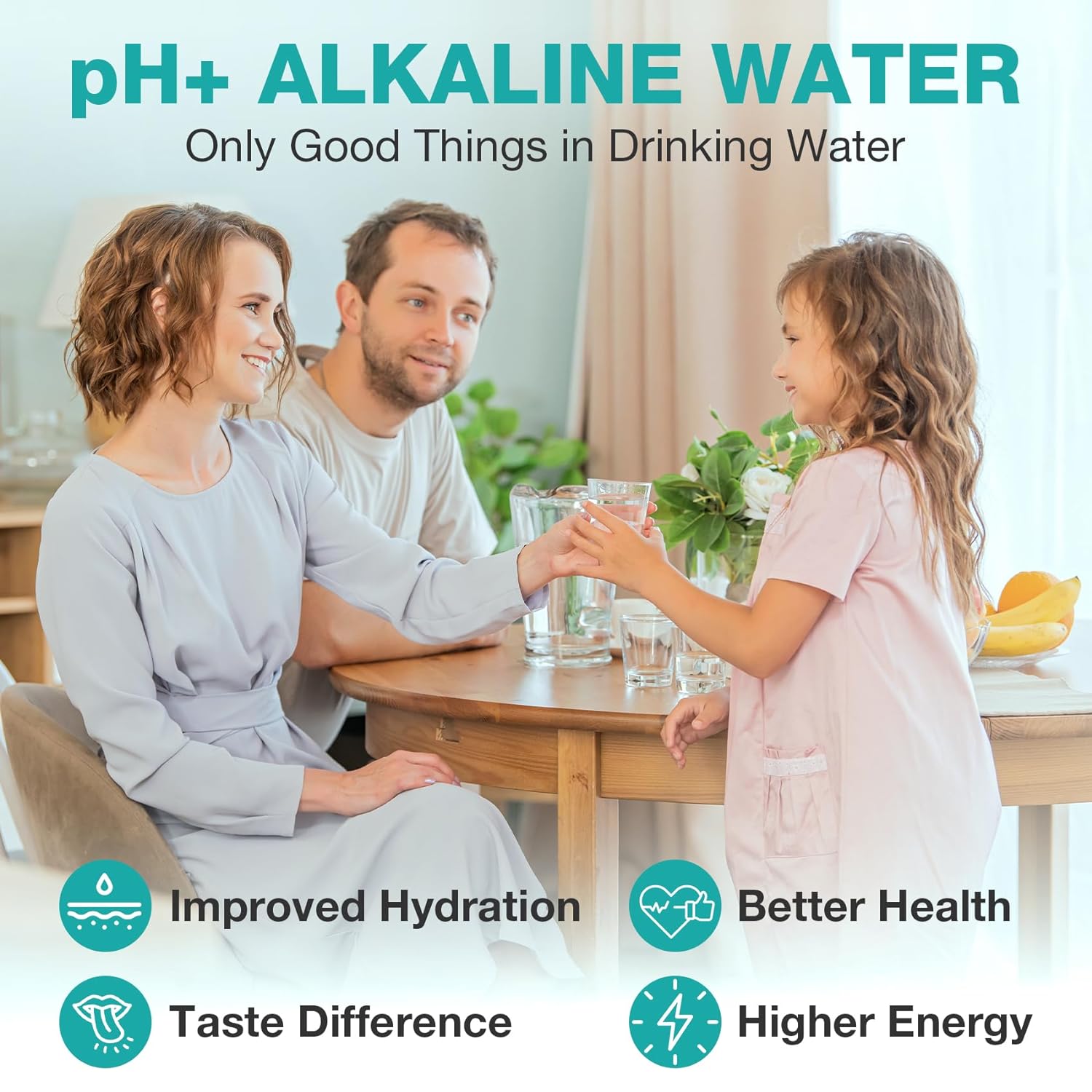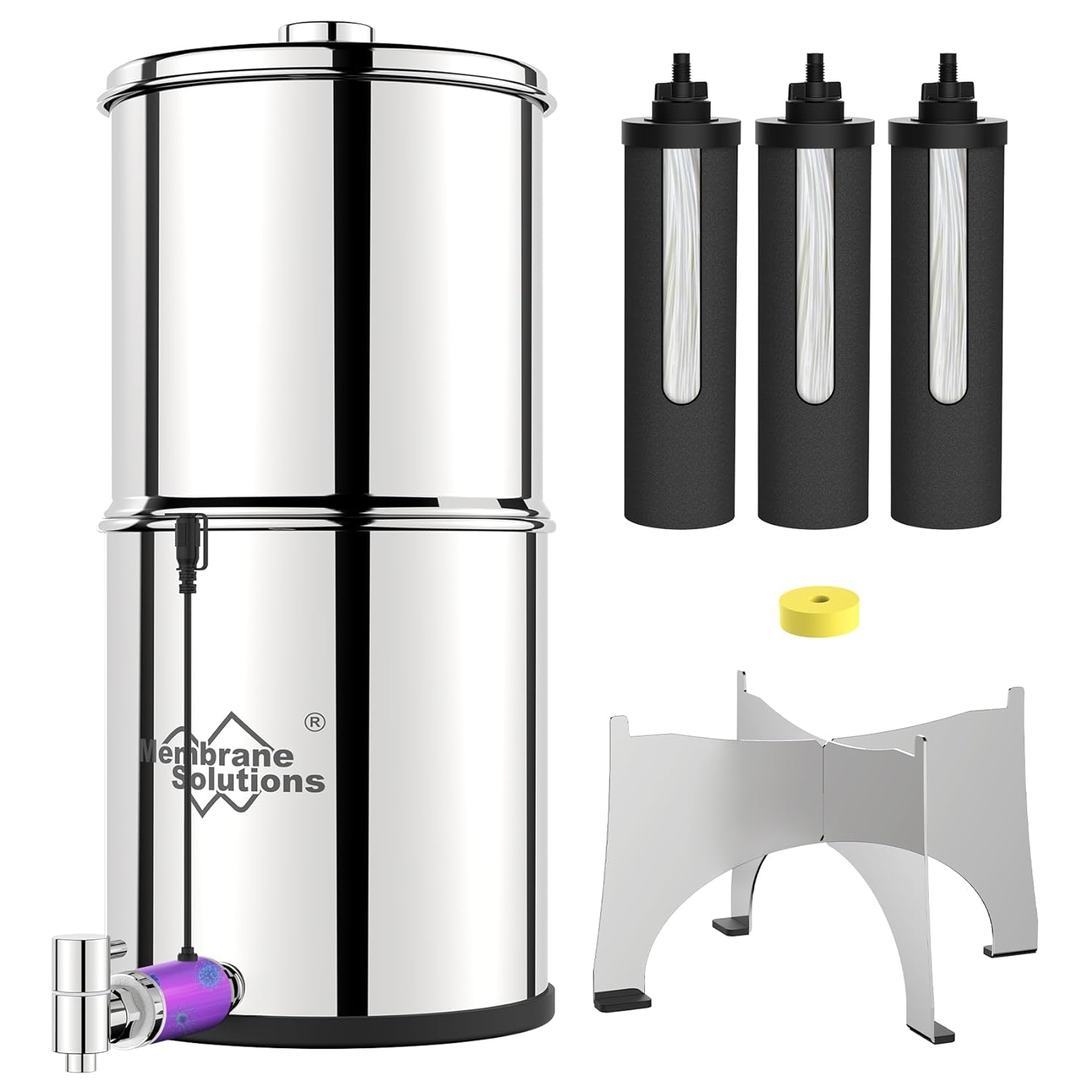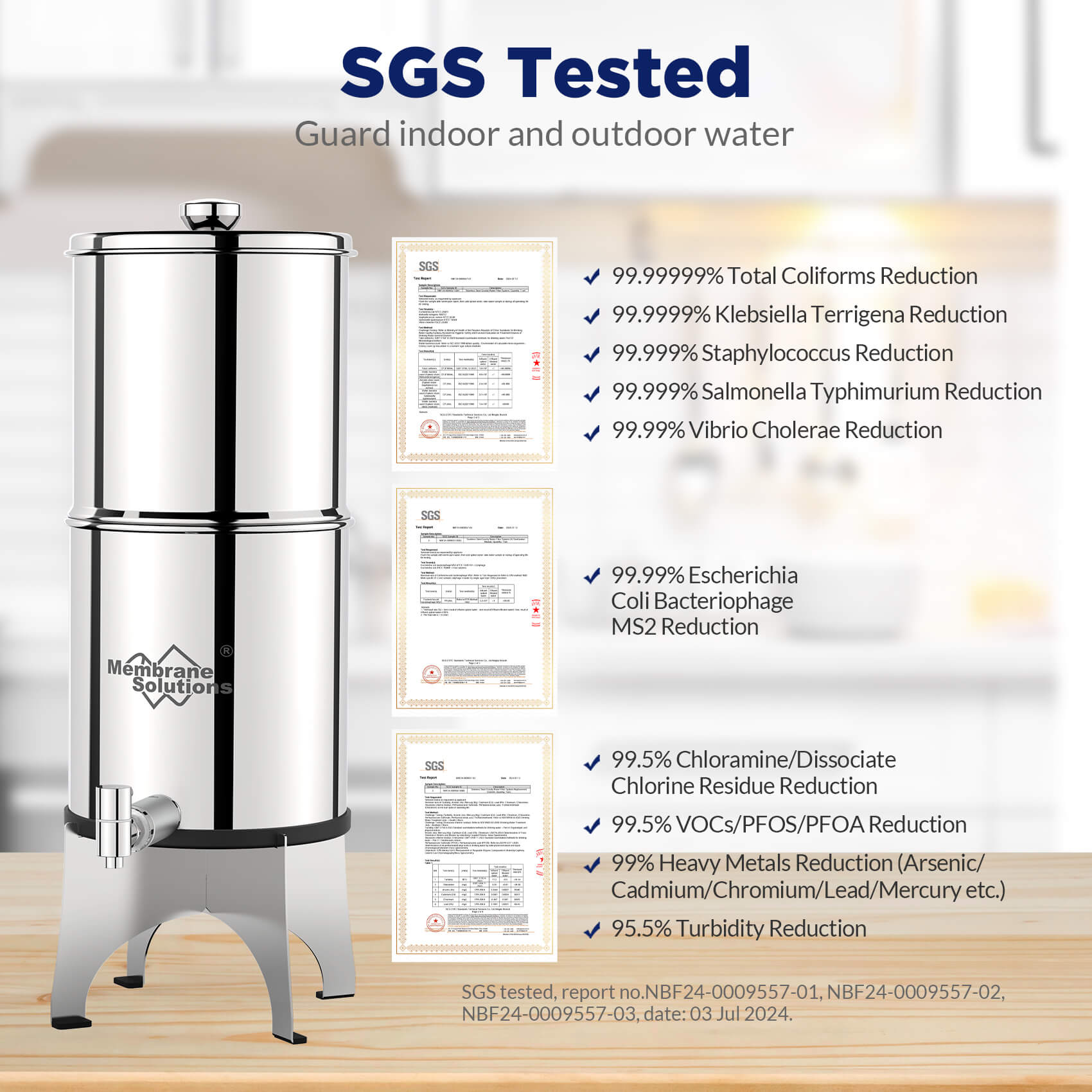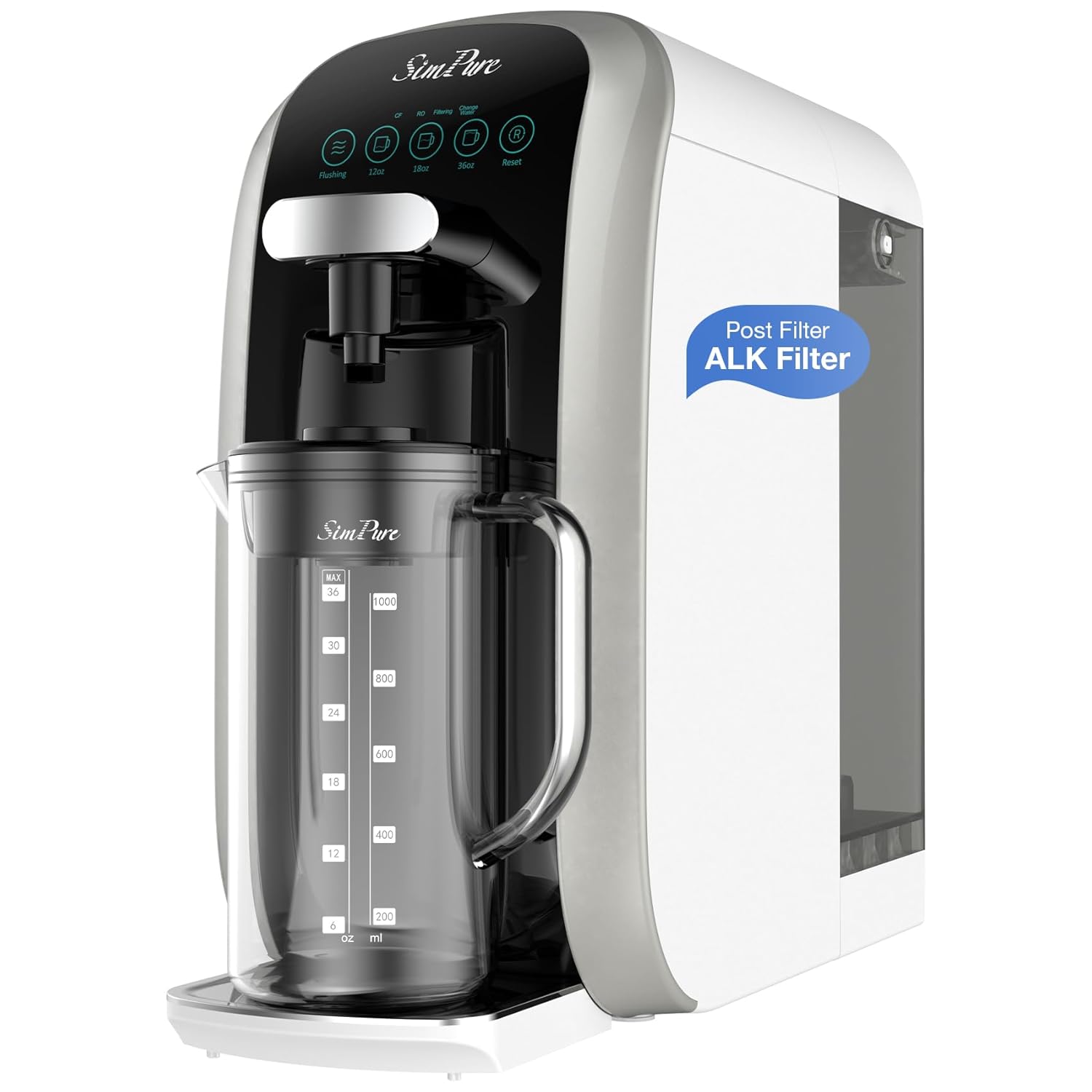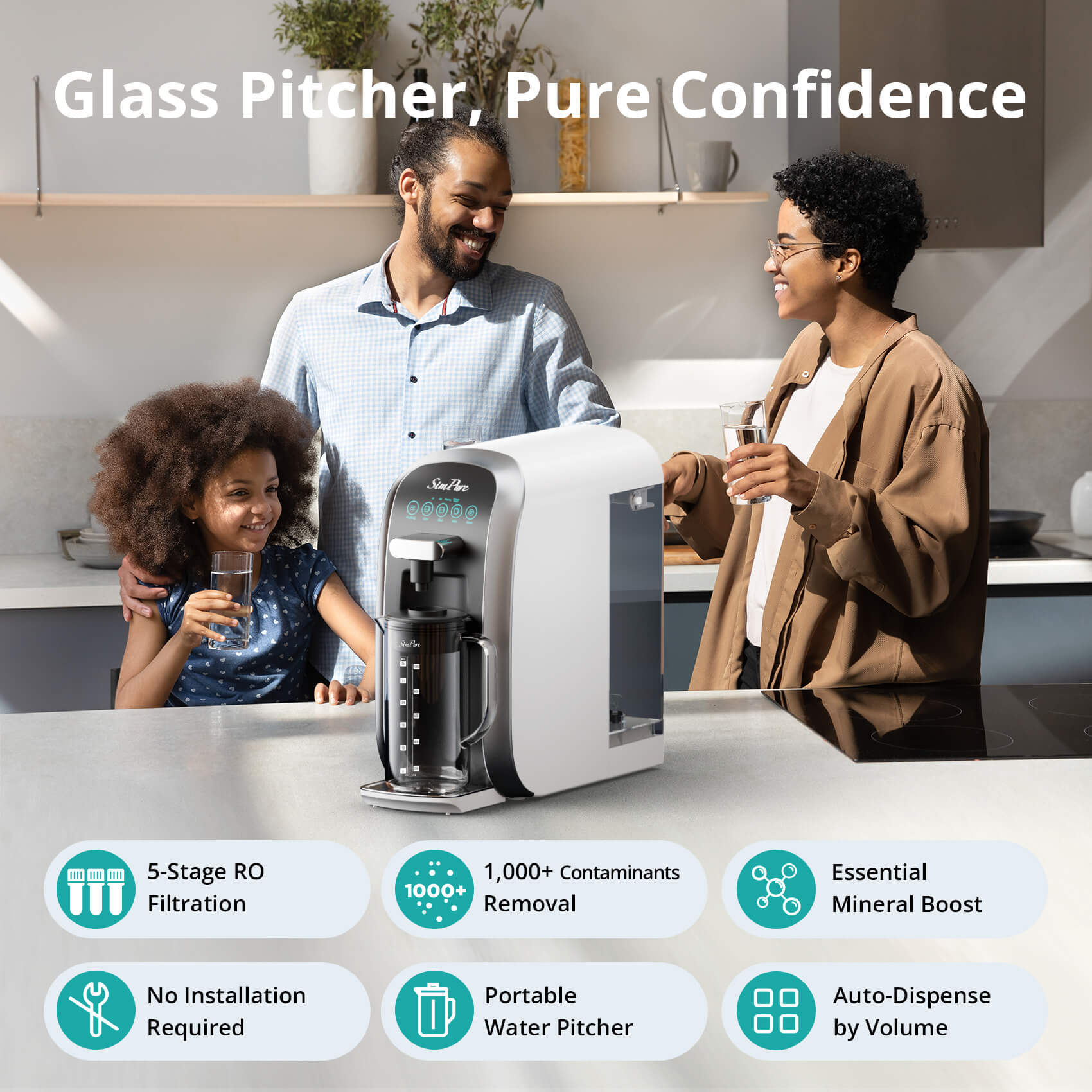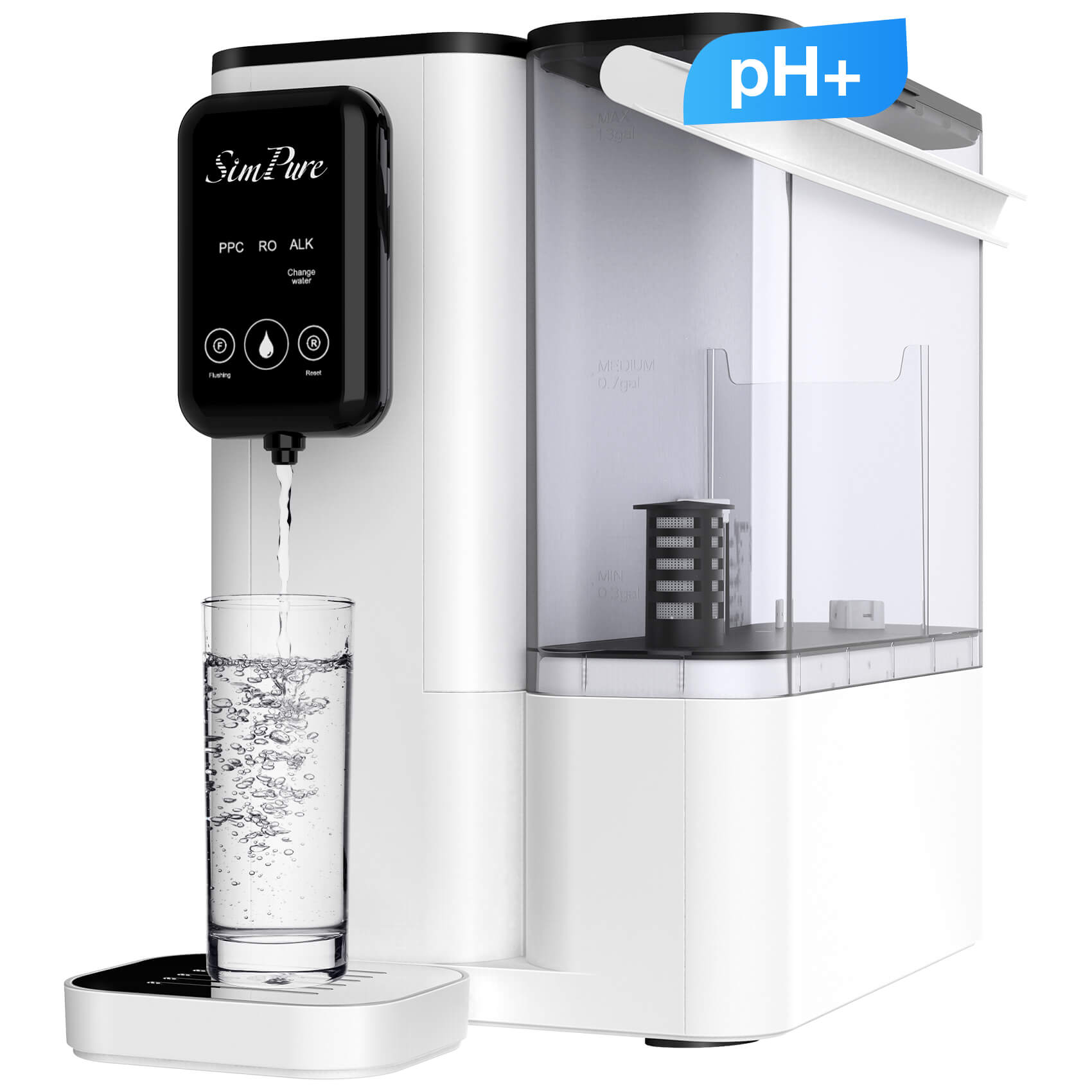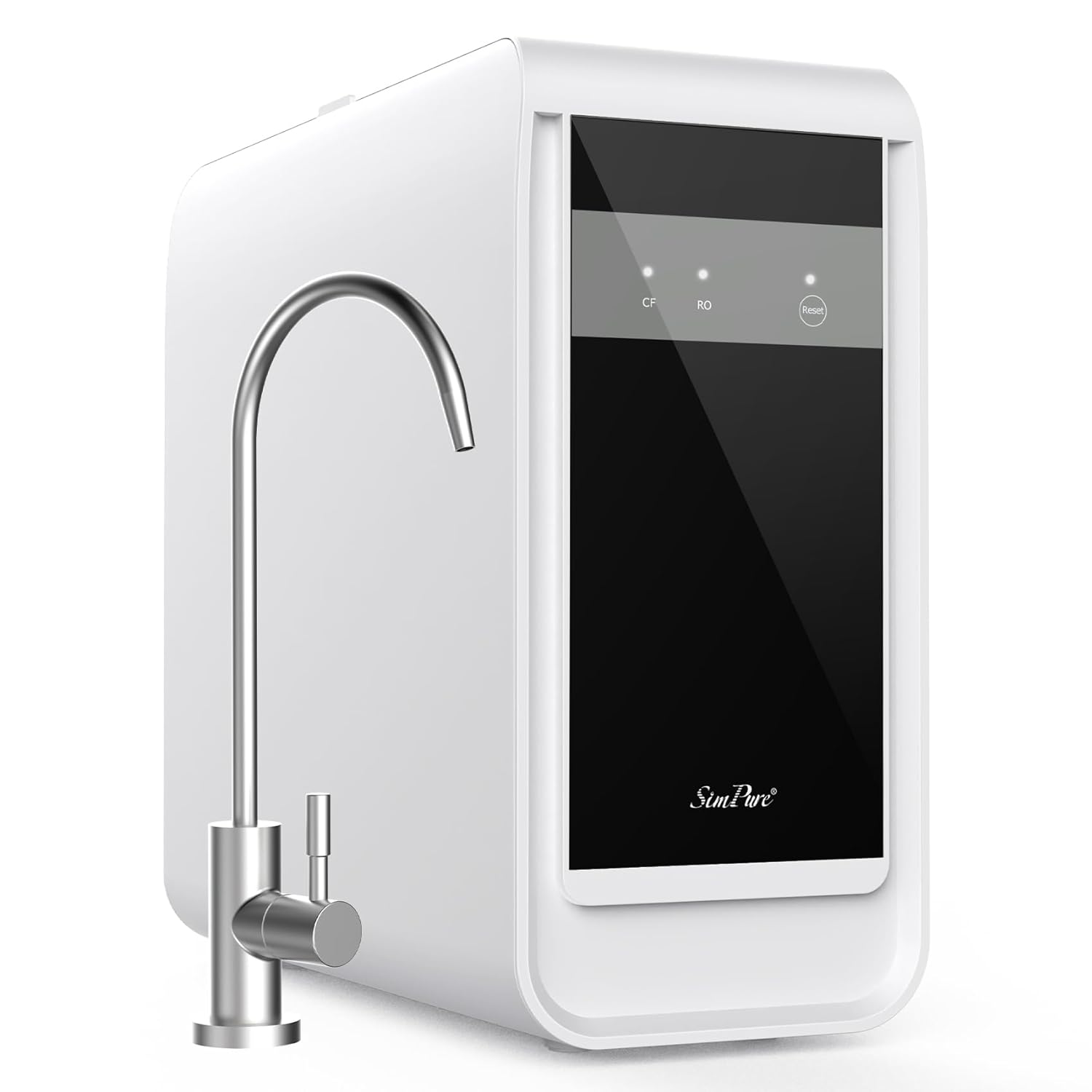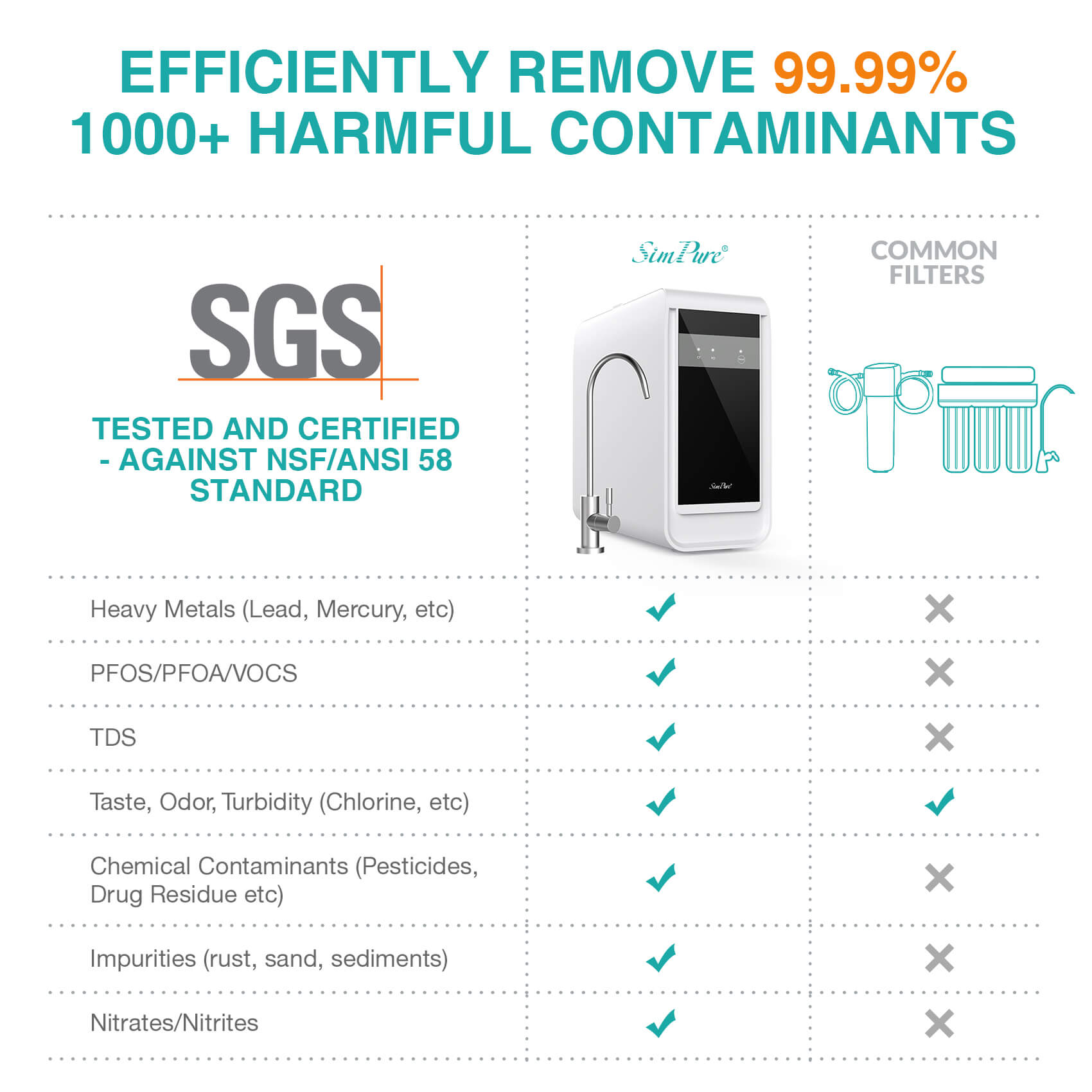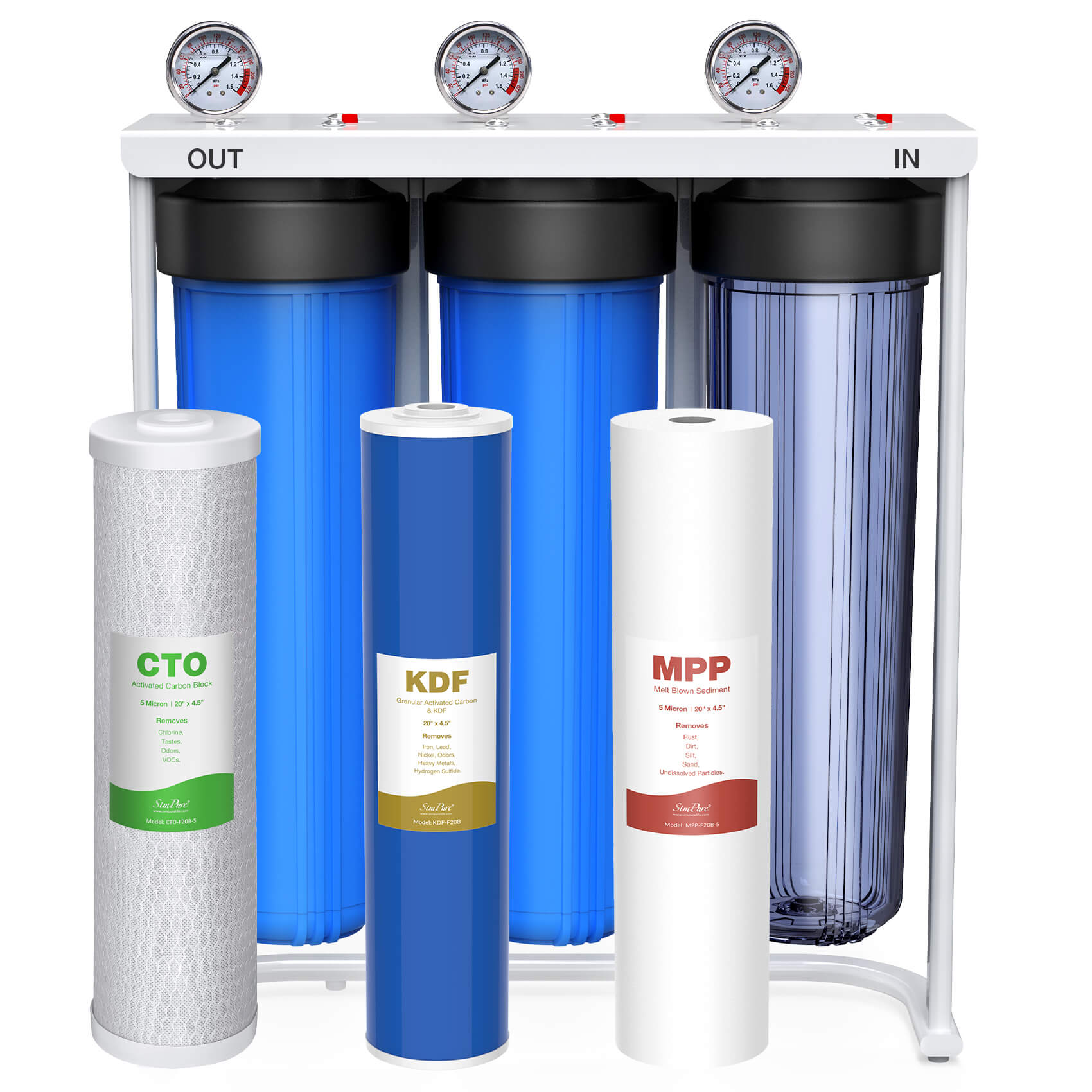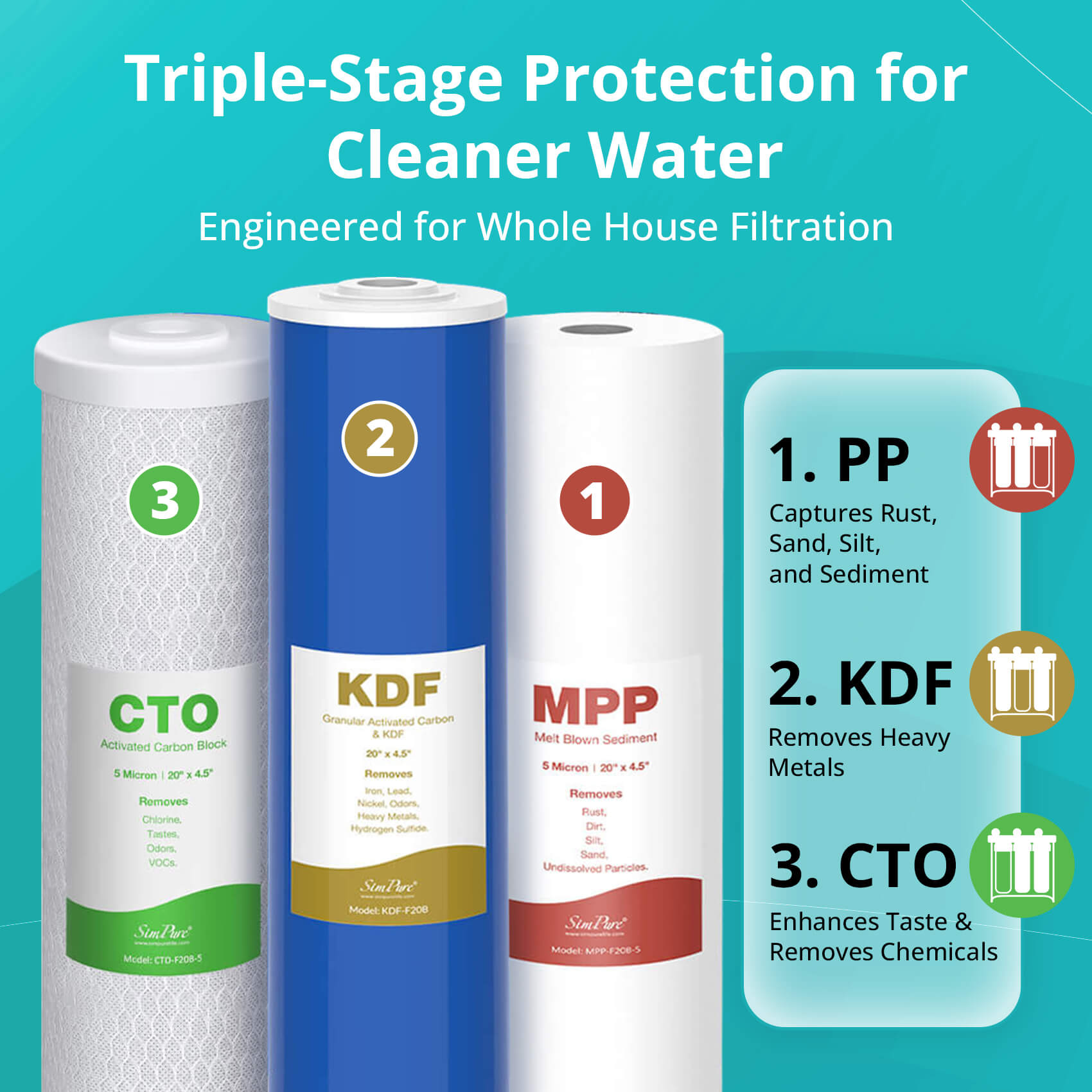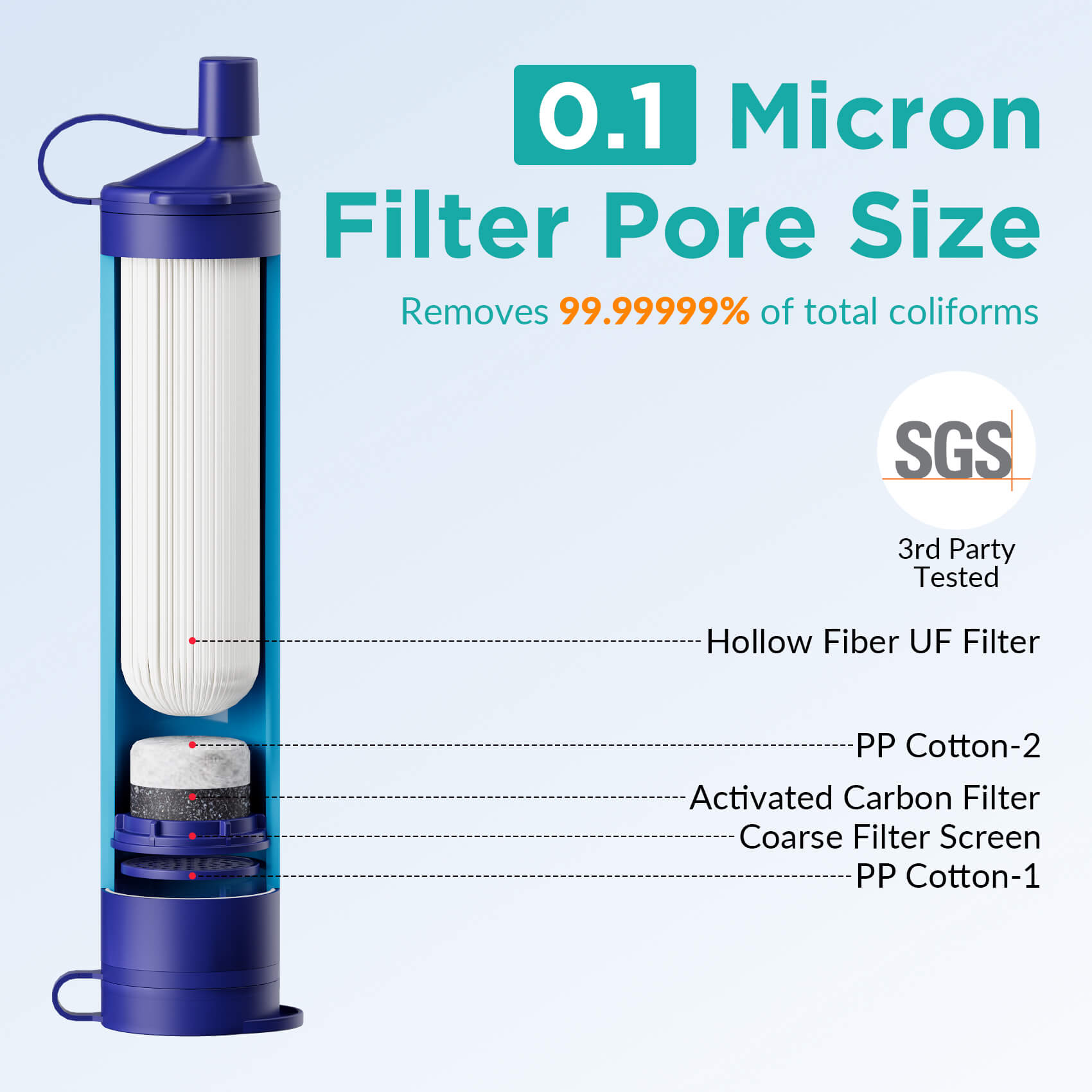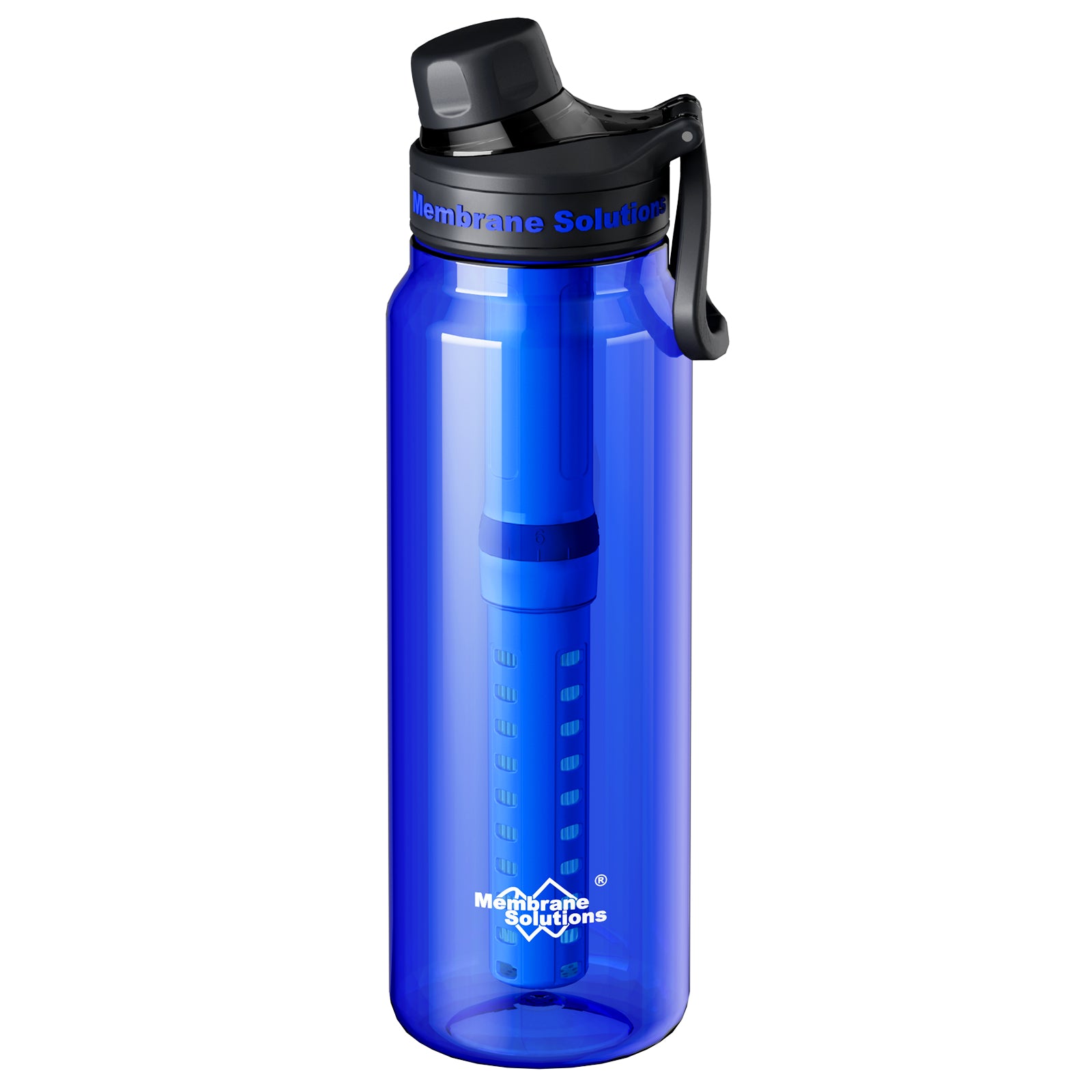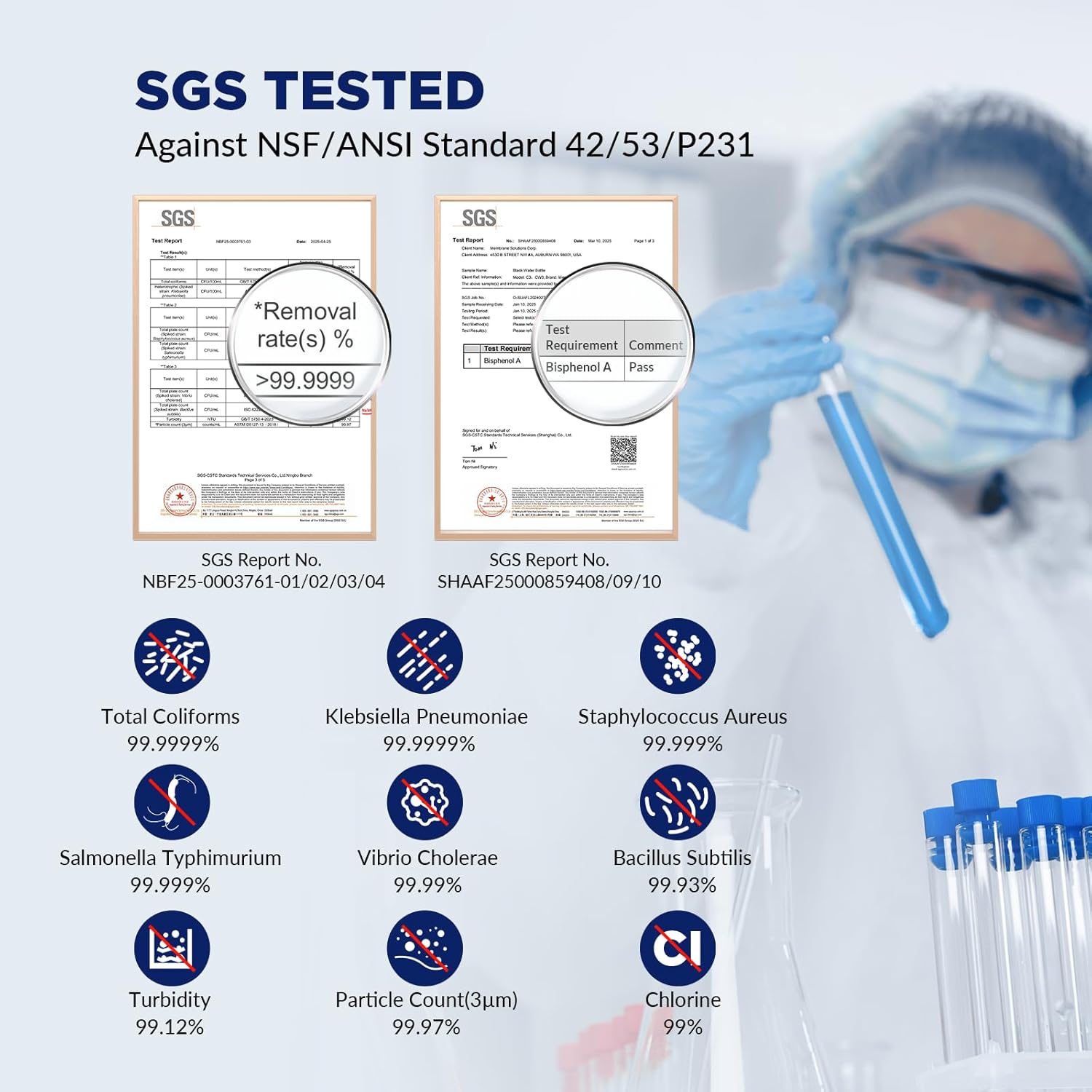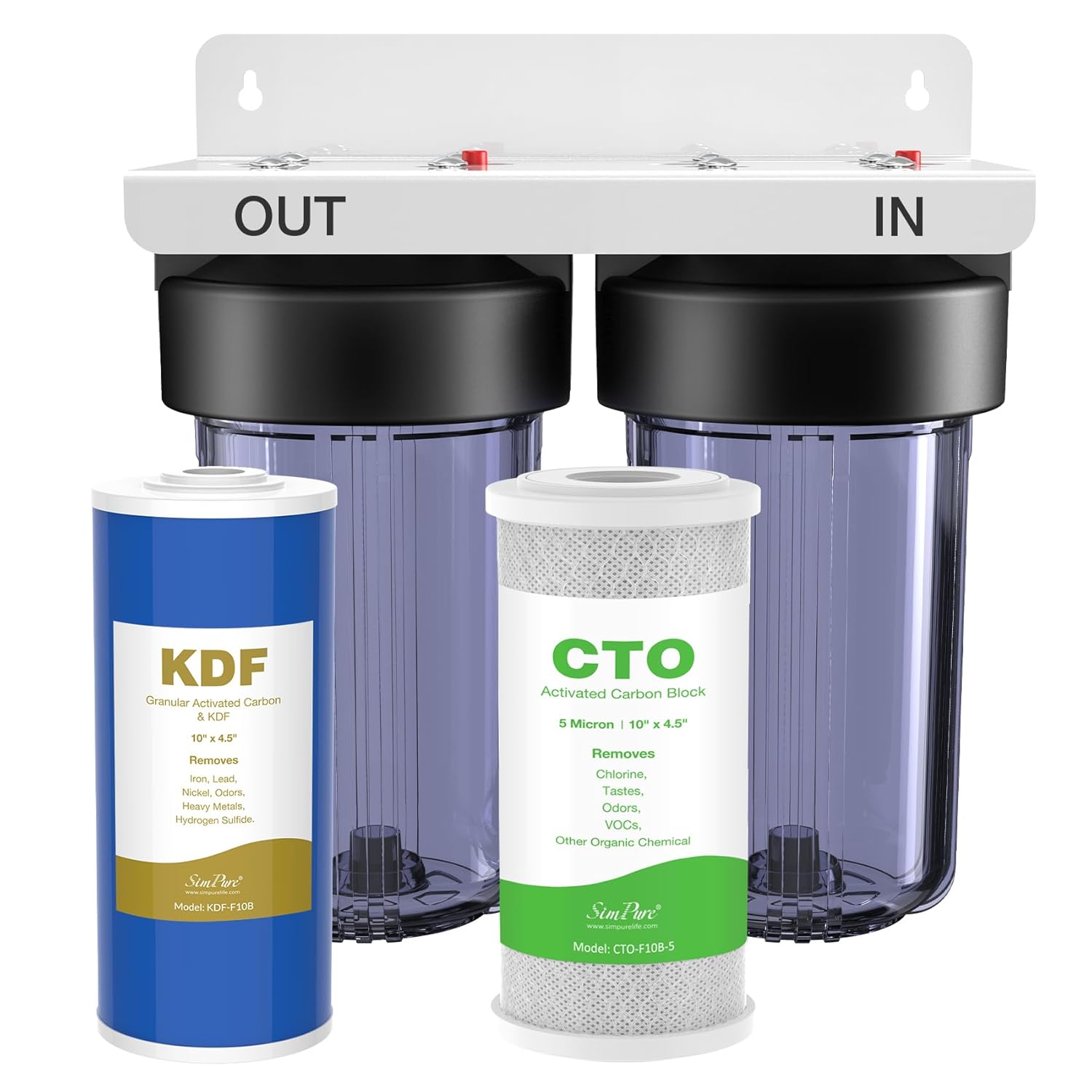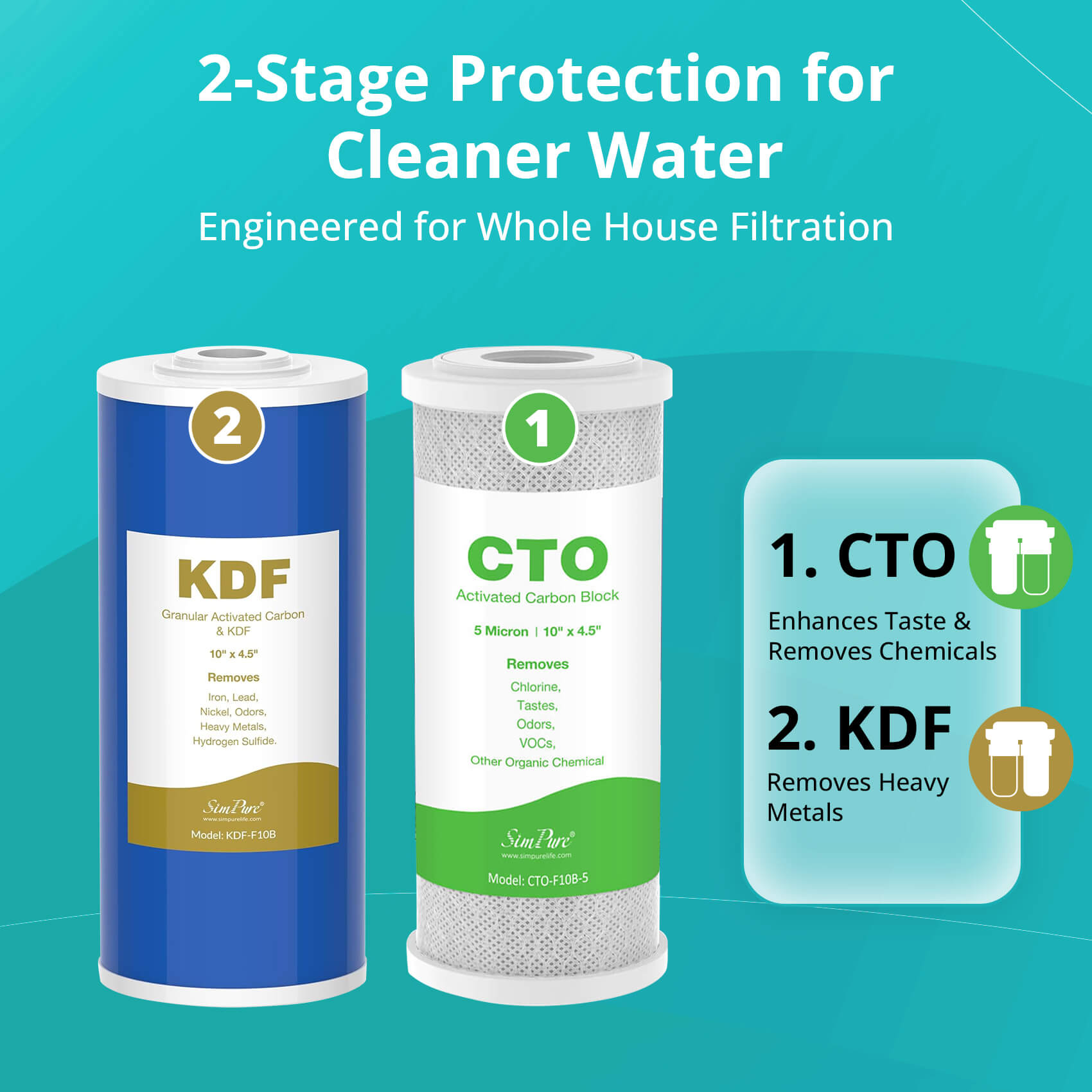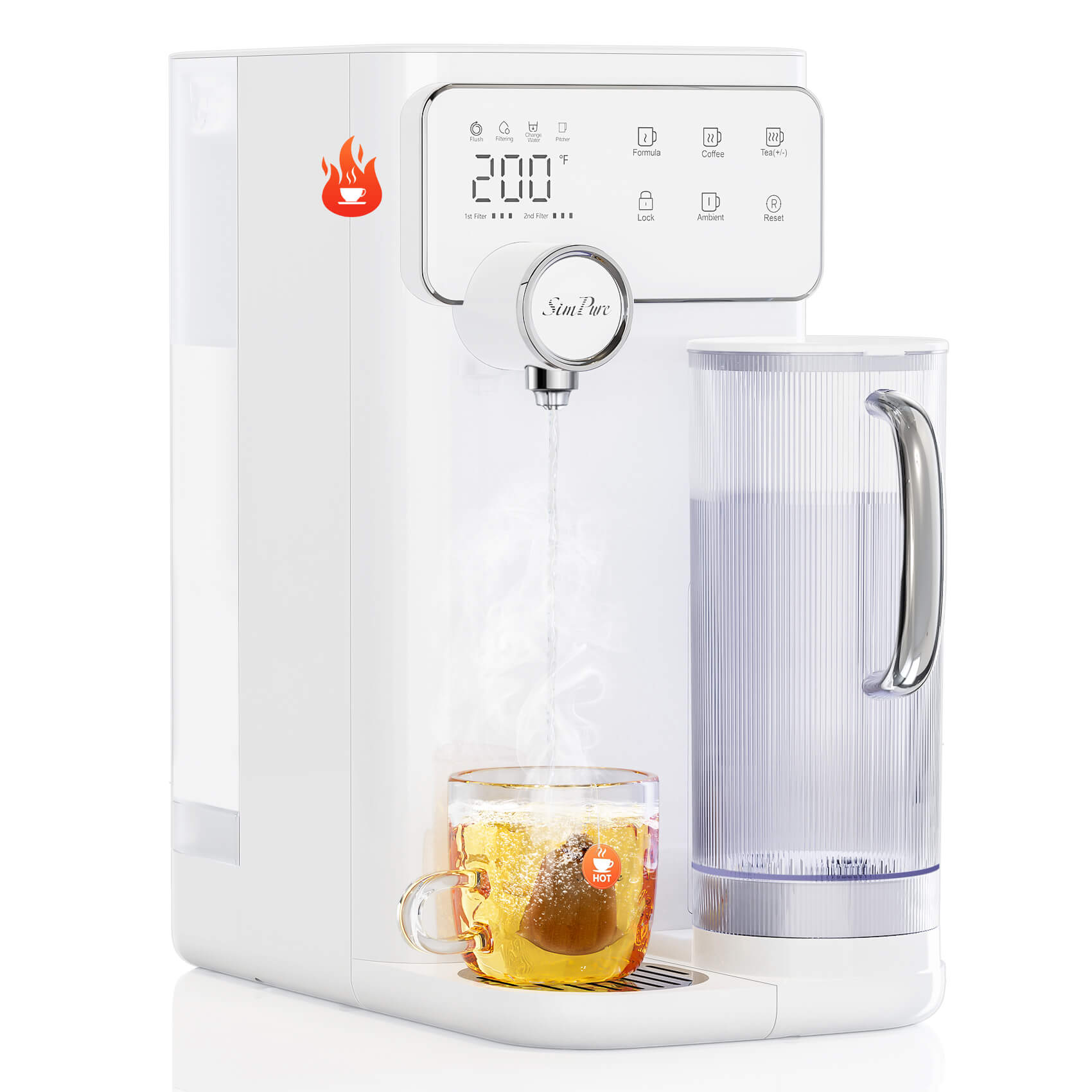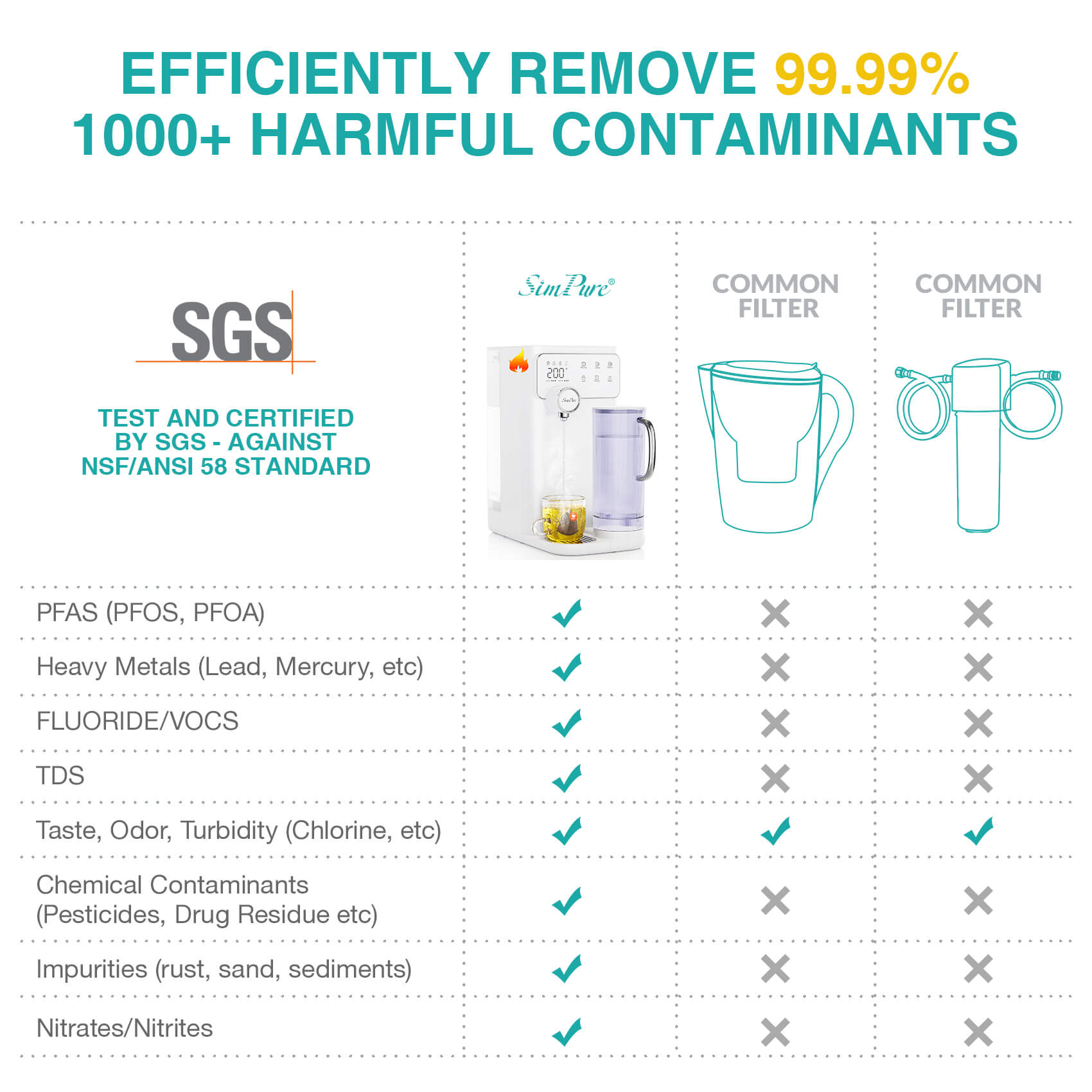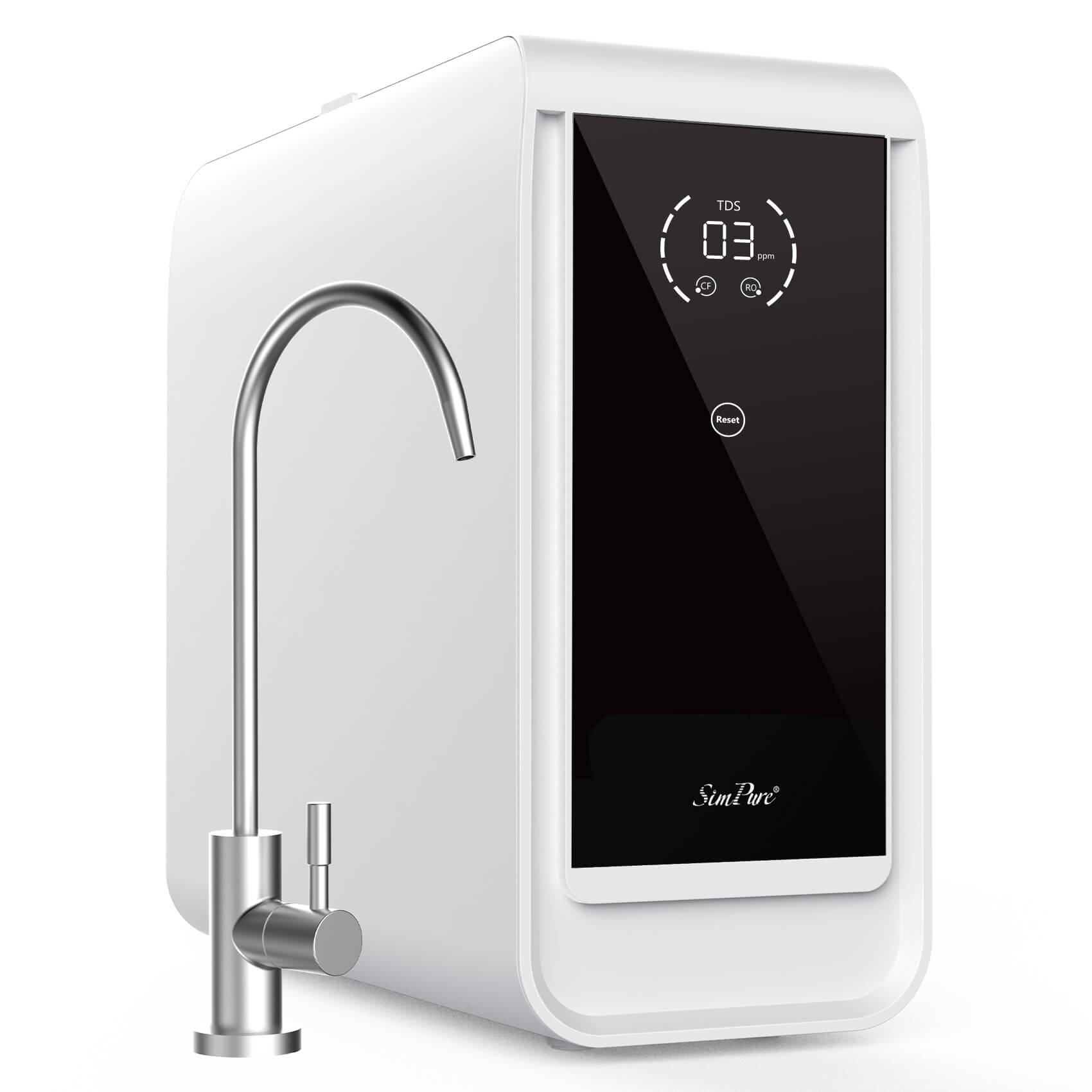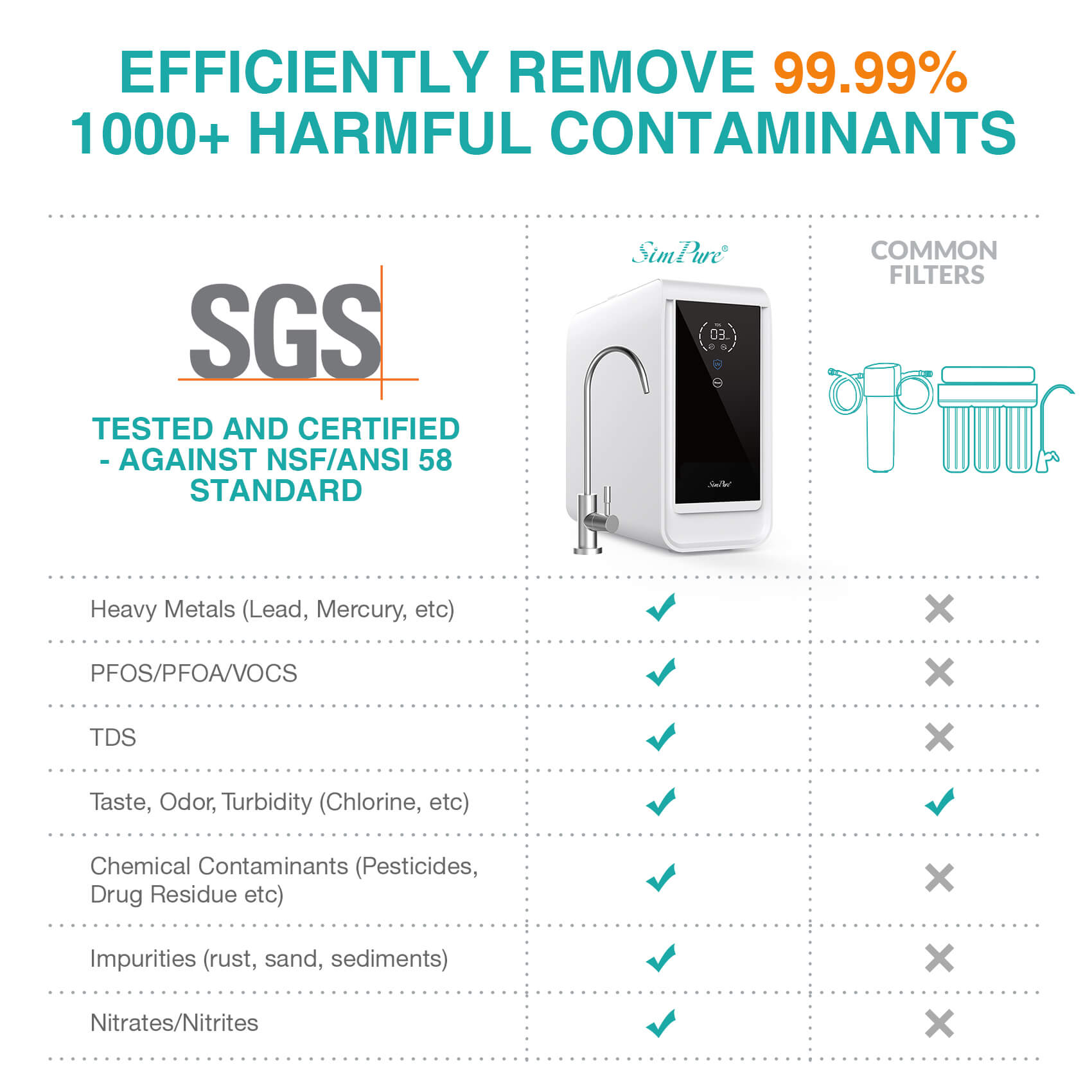Are you still wondering why water filter or filtration is important? Over the years, environmental pollution problems have frequently exploded, and the safety of water resources has also begun to make people worry, and that is why water filters are important. With the rapid popularization of water filter purifiers, consumers' consumption habits are also quietly changing. Drinking water safety awareness has changed, from boiling water to bottled water, and now installing water filters to filter drinking water. Modern life is quietly evolving and undergoing a revolution in drinking water. So water filters and water purifiers are playing a more and more important role. To keep you and your family away from diseases caused by dirty and polluted water, it's very important for you to use a water filter. Here are the Top 10 importance of water purifier:

Importance 1: Healthier Life – Removes Toxins
Water filtration removes harmful toxins like lead, chlorine, and pesticides. These contaminants enter water through old pipes, industrial runoff, or treatment chemicals. Lead can cause brain damage, chlorine dries skin, and pesticides may increase cancer risk. A good filter (like activated carbon or reverse osmosis) traps these toxins, giving you cleaner, safer water. For example, SimPure filters reduce chlorine taste, while RO systems remove heavy metals. Drinking filtered water means fewer toxins in your body—better for your kidneys, digestion, and long-term health.
Importance 2: Saves Money – Cuts Bottled Water Costs Long-Term

Buying bottled water adds up fast—just do the math. A $1 bottle daily costs $365/year, while a $50 filter processes thousands of liters for pennies per gallon. No more last-minute store runs or overpaying for "premium" water. Filtration systems (like pitchers or under-sink units) cut long-term expenses by 90% or more compared to bottled water. Plus, you avoid inflation-driven price hikes on packaged water. It’s a one-time investment with years of savings.
Importance 3: Eco-Friendly – Reduces Plastic Waste and Pollution
Plastic bottles aren’t just trash—they’re carbon-heavy to make and move. Filtering water at home cuts:
- Oil used in production (3L of water + fuel per 1L bottle),
- Delivery truck emissions (shipping heavy packs globally),
- Microplastics (from degrading bottles in ecosystems).
- One filter cartridge = 1,000+ bottles prevented. Tiny switch, massive impact.
Importance 4: Better Taste – Eliminates Odd Smells and Flavors
Tap water’s odd flavors often come from chlorine (pool-like taste), sulfur (rotten egg smell), or metals like iron (blood-like tang). Filters with activated carbon absorb these contaminants via adsorption, like a sponge for bad tastes. For stronger odors (e.g., well water hydrogen sulfide), catalytic carbon or reverse osmosis (RO) systems work best.
Importance 5: Essential for Pregnant Women’s Health and Baby’s Development.
Unfiltered water can contain harmful contaminants like bacteria, heavy metals, and chemical residues that may pose health risks—especially for pregnant women. During pregnancy, the immune system is more vulnerable, making it easier for waterborne pollutants to cause adverse effects. Drinking unfiltered water may lead to symptoms such as nausea, vomiting, or gastrointestinal discomfort, which can complicate pregnancy. Exposure to substances like lead or nitrates can also impact fetal development. That’s why water filtration is crucial. A reliable system, like a reverse osmosis filter, helps remove these impurities, ensuring safer hydration for both mother and baby during this critical stage.
Importance 6: Safer Kids – Protects from Harmful Contaminants Effectively

Children drink 2–3x more water per pound than adults, magnifying exposure to nasties like fluoride (harmful in excess), nitrates (from farm runoff), and microplastics. Reverse osmosis (RO) systems strip these entirely, while activated carbon handles chlorine. For babies, pair with a lead-free stainless steel bottle—double protection from sippy cup to playground.
Importance 7: Longer Lifespan – Reduces Heavy Metals
Tap water can secretly contain lead, mercury, arsenic, and cadmium—metals linked to organ damage, cognitive decline, and chronic diseases over time. A reverse osmosis (RO) system removes 95-99% of these toxins, acting like a shield for your kidneys, brain, and heart.
Importance 8: Clearer Skin – Minimizes Harsh Chemicals in Bathing

Chlorine and hard minerals in unfiltered water strip away natural oils, leaving skin dry, flaky, and prone to irritation. A shower filter with KDF media neutralizes chlorine, while a whole-house softener tackles calcium/magnesium buildup. The result? Fewer breakouts, less eczema, and smoother skin—because hydration starts with what you wash in, not just what you drink.
Importance 9: Stronger Immunity – Blocks Bacteria and Viruses
Boiling kills germs but not chemical toxins or microplastics that weaken immunity over time. A multi-stage RO filter system (carbon + RO...) tackles both live pathogens and invisible pollutants. For travelers or immune-compromised folks, a portable filter (e.g., Membrane Solutions water filter straw) adds extra protection against stomach bugs and waterborne diseases when you are on outdoor adventures.
Importance 10: Convenient Access – Anytime, No Waiting
Forget waiting for deliveries or boiling tap water—under-sink RO systems deliver purified water straight from your faucet, 24/7. No storage jugs, no fridge space taken up by pitchers, just on-demand H₂O for drinking, cooking, or filling coffee makers instantly. It’s like having a bottled-water factory under your counter—without the plastic waste.
How Do Water Filters Keep You and Your Family Away From Diseases?
The function of the water filter is to filter out the floating objects, heavy metals, residual chlorine, sediment, rust, microorganisms, etc. The residual chlorine in the water can retain and increase the trace elements of water, and improve the taste of the water.
One of the most effective technologies is the reverse osmosis (RO) system. This system uses a semipermeable membrane to filter out impurities as small as 0.0001 microns.
When tap water flows through an RO system, it passes through multiple filtration stages—typically including sediment, carbon, and the RO membrane. The membrane blocks bacteria, viruses, heavy metals like lead and arsenic, nitrates, and even microscopic parasites like Giardia and Cryptosporidium. These pathogens are known to cause gastrointestinal illnesses, reproductive issues, and neurological damage if consumed regularly.
Additionally, RO systems eliminate chlorine and other chemicals that can disrupt gut health or irritate the skin. For families with children, elderly members, or immune-compromised individuals, this level of filtration ensures the water they drink and cook with is consistently safe and pure.
In essence, a reverse osmosis water filter acts as your first line of defense against disease-causing agents in water. It turns potentially hazardous tap water into a clean, reliable source for hydration and daily use—making it a smart health investment for your household
Clean water is more than a convenience—it’s a commitment to your family’s health. As we’ve seen across 10 essential aspects, water filtration protects against hidden threats that unfiltered water can carry. Choosing a trusted solution makes a difference. SimPure provides powerful, easy-to-use purification right at home.
Make the smart choice for your loved ones’ safety—explore SimPure today and turn every sip into a step toward better health.





